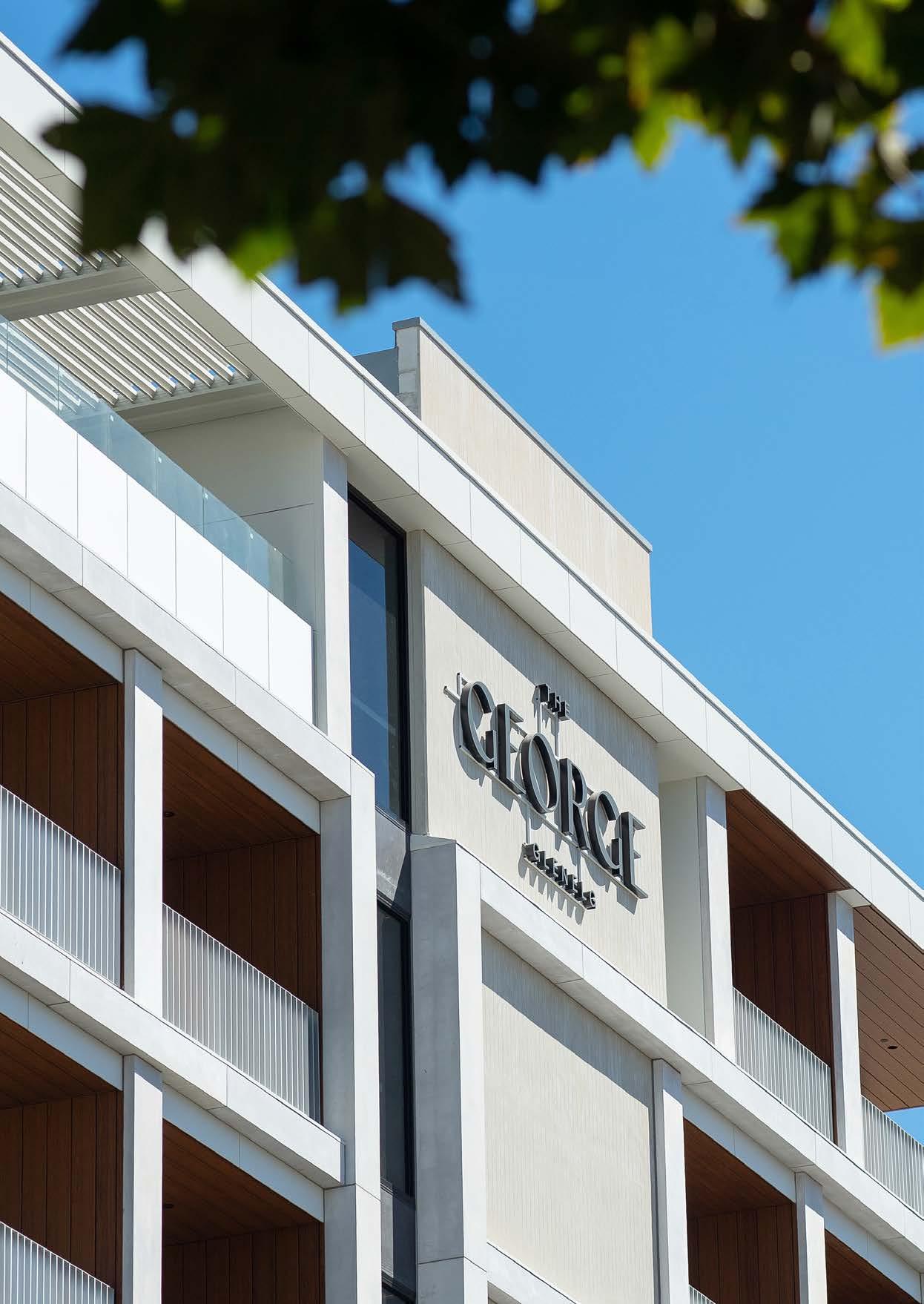
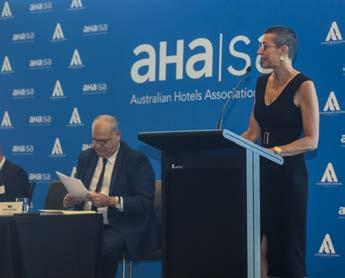
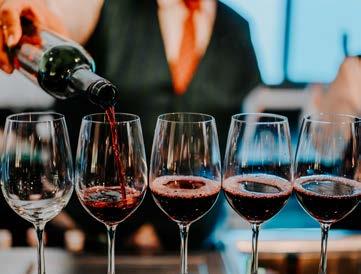








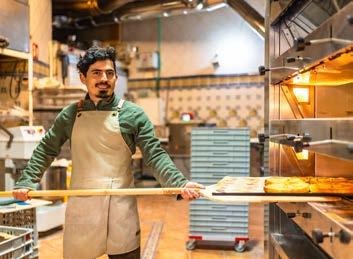
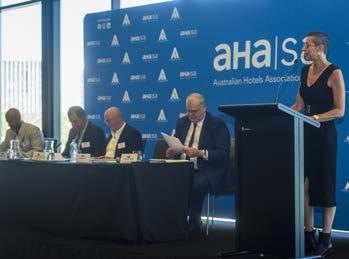


DAVID BASHEER
The AHA|SA used its Annual General Meeting lunch to highlight key issues to the Members of Parliament, ministerial advisors and senior personnel from SAPOL and CBS, who were all in attendance.
High on the list was concerns was the alarming rise in crime and anti-social behaviour and the growing impact it is having on our members.
We stressed that after generations of policy failure, real action is urgently required to protect our members, their staff and the wider community. The long-standing approach of ‘deny, defend, defer’ must end.
The AHA|SA is calling for:
• tougher penalties for offenders
• enhanced security measures
• increased police resourcing Hoteliers throughout the State are being asked to do a disproportionate amount of the heavy lifting in crime prevention.
Whyalla is the most recent region to now have liquor restrictions imposed upon them. These restrictions are difficult and costly for hotels to manage.
I am not convinced the high level of cooperation provided by licensees to implement these requirements is understood, nor is it fully valued.
And there is overwhelming evidence that such measures simply shift the problem. They do not solve the problem. For example, the Adelaide CBD restrictions
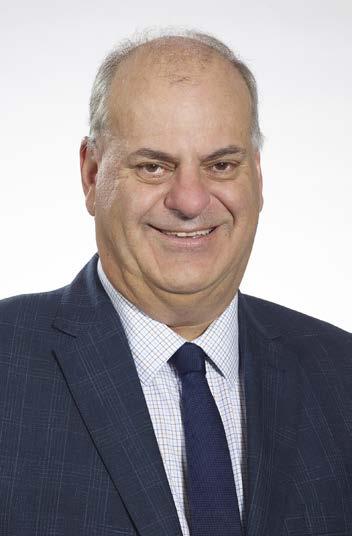
have led to unsavoury issues moving wider than the inner city.
Someone pinching the odd six pack is annoying but the real issue is the well-known repeat offenders who steal large amounts of alcohol on a very regular basis. They do so with scant regard to any consequences.
It is a very unpleasant, and too often an unsafe work environment for our staff. And it is a heavy cost for our owners to shoulder
We offer no criticism to SAPOL, which deploys its resources in the best possible form.
But these repeat offenders - organised groups using intimidation and violence in a sustained mannermust not be allowed to re-enter our stores without repercussions.
So, we are seeking three changes of approach:
1. This repeated criminal activity needs to be met with the appropriate jail terms.
2. Our members are investing huge sums of money in crime prevention measures. It is beholden upon government to financially support our members to make their stores safer for our staff - and the wider community. The Northern Territory Government has partnered with hotels to help fund a range of security measures.
3. There must be a stronger intent to fix the issue of anti-social behaviour that we all observe on the streets, and this should include increased police resourcing.

“We are calling for regulatory reforms to significantly reduce the cost of card payments and level the playing field for small business and their customers.”
Our hotels are battling constant increases in their costs in an environment where it is difficult to pass on these increases to our customers.
At a time when governments need to be offering maximum assistance to small and family businesses, the Federal Government’s ambition to ban debit card surcharges - and potentially credit cards - from next January creates yet another burden.
Preventing costs from being passed on means this will become another expense for small business. This is after higher wages, insurance costs, rents and produce costs have already hit operating margins.
Should card surcharges be abolished, this will undoubtably add to inflation as venues increase prices for cost recovery.
Any surcharge ban will hit cash users too, as price increases would be applied to all customers.
We will have the situation where cash users are subsidising card users – and everyone will have to pay more.
The major supermarkets pay a tiny fraction of what a typical business pays in card fees.
They pay 1c in each $100 compared to an average pub paying over a dollar.
We don’t want our industry to become a duopoly of small business versus the big liquor chains owned by supermarkets, where small business people are being treated unfairly by payment service providers and the card schemes.
This is yet another example of small business finding it even harder to compete because they do not have the same bargaining power.
The AHA at a national level has met with the Reserve Bank on this matter and joined forces with the Independent Payments Forum and other industry groups to best defend members.
We are calling for regulatory reforms to significantly reduce the cost of card payments and level the playing field for small business and their customers.
We are also seeking a cap on interchange fees and having debit cards separated from high-cost credit cards that increase the blended rate.
David Basheer, AHA|SA President
ANNA MOELLER
The AHA|SA has given evidence to a Parliamentary Select Committee into the short-term rental accommodation (STRA) sector in South Australia. We made a powerful case that the unregulated growth of STRA has negatively impacted housing availability, affordability, local communities and the regulated accommodation industry.
It is very obvious to everyone that while platforms like Airbnb initially promoted home-sharing, the reality is that most listings are now unhosted investment properties, significantly reducing long term rental availability.
The key points we raised in our submission include:
• Unregulated STRA is contributing to the current housing crisis
• Inequality of undermine the conventional accommodation sector
• STRA is having a negative impact on employment
• The critical need for a regulatory framework to capture all providers of STRA.
The growth in the number of unregulated short term rental accommodation (STRA) properties throughout South Australia poses a real and growing threat to employment and the viability of the SA accommodation industry.
We need action and leadership by government to properly manage this rapidly growing unregulated industry.
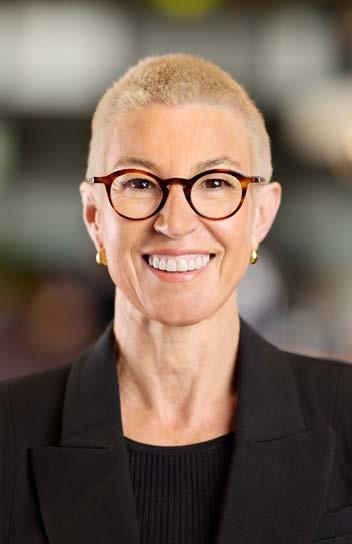
Whilst hotels, motels, bed and breakfasts, serviced apartments and hostels must comply with a myriad of regulations, properties that are listed on peer-to-peer platforms, such as Airbnb, do not.
This inequity is impacting the viability of hotels. It is putting employment and training opportunities at risk, undermining investment decisions and adding to the strain of the long-term rental crisis.
It is also jeopardising the safety of guests.
The amenity and safety of communities is also compromised as a result of quasi-hotels operating in residential areas. Neighbourhoods are being adversely impacted, with little recourse for affected residents.
The AHA|SA has always expressed concern with the fact that STRA operates unregulated in South Australia. These concerns are now further highlighted by the acutely chronic housing shortage currently being experienced across the State. The housing shortage is particularly felt across the regions, where there is both a shortage of skilled workers and nowhere to house them.
Interstate governments, and governments around the world, are moving to regulate platforms such as Airbnb. Why? Because they have accepted in the mounting evidence of the economic and social impact of unregulated short-stay accommodation.
Many States and Territories now look to the South

“New York, Canada, London, Paris, Amsterdam, Berlin, and San Francisco (the birthplace of Airbnb) are just a few of the cities that have adopted regulations to address the rapid growth of short-stay accommodation.” ”
Australian government, which has earned a reputation for taking leadership positions on critical issues, so it is important that we are an early adopter of effective change in this space.
This is an issue that has morphed into a problem that cannot currently be addressed by local government authorities. While they are at the coalface, they do not have the appropriate policies, legislative levers or resources to make the changes required.
Consistent with international approaches, the AHA|SA proposes that STRA could be regulated using key principles. This solution would allow genuine home letting and sharing to continue, while protecting the economic and social benefits that are derived from the regulated accommodation industry.
1. Home sharing properties must be registered, with government funding to provide compliance monitoring.
2. Minimum stay requirement of 7-30 nights (to be determined by local councils).
3. Consideration of only hosted accommodation may be listed for sharing – this will require the accommodation provider (or an employee) to reside at the residential premises during the short-term rental agreement.
4. STRA must meet fire, safety, building and insurance requirements appropriate to short term rentals.
5. Airbnb, and other Peer-to-Peer platforms, must be required to stop listing non-compliant rentals and share relevant data with authorities.
6. Neighbours, co-tenants and landlords must be empowered and allowed to have a say.
So as not to stifle tourism, we propose that in times of great need for additional short-stay accommodation – such as Gather Round, LIV Golf, VAILO Adelaide 500, WOMADelaide and the Adelaide Fringe – STRA regulation could allow for the declaration of a “Major Public Event” period.
During these times, home owners wishing to list their property on platforms such as Airbnb would be exempted from the mandatory registration scheme and other regulatory requirements.
The Baron heralds a new frontier in gaming with a design that breaks the norms, technology that leaps ahead and lighting that bursts with entertainment.
Launching with some great games: Cashman® and many more coming soon!
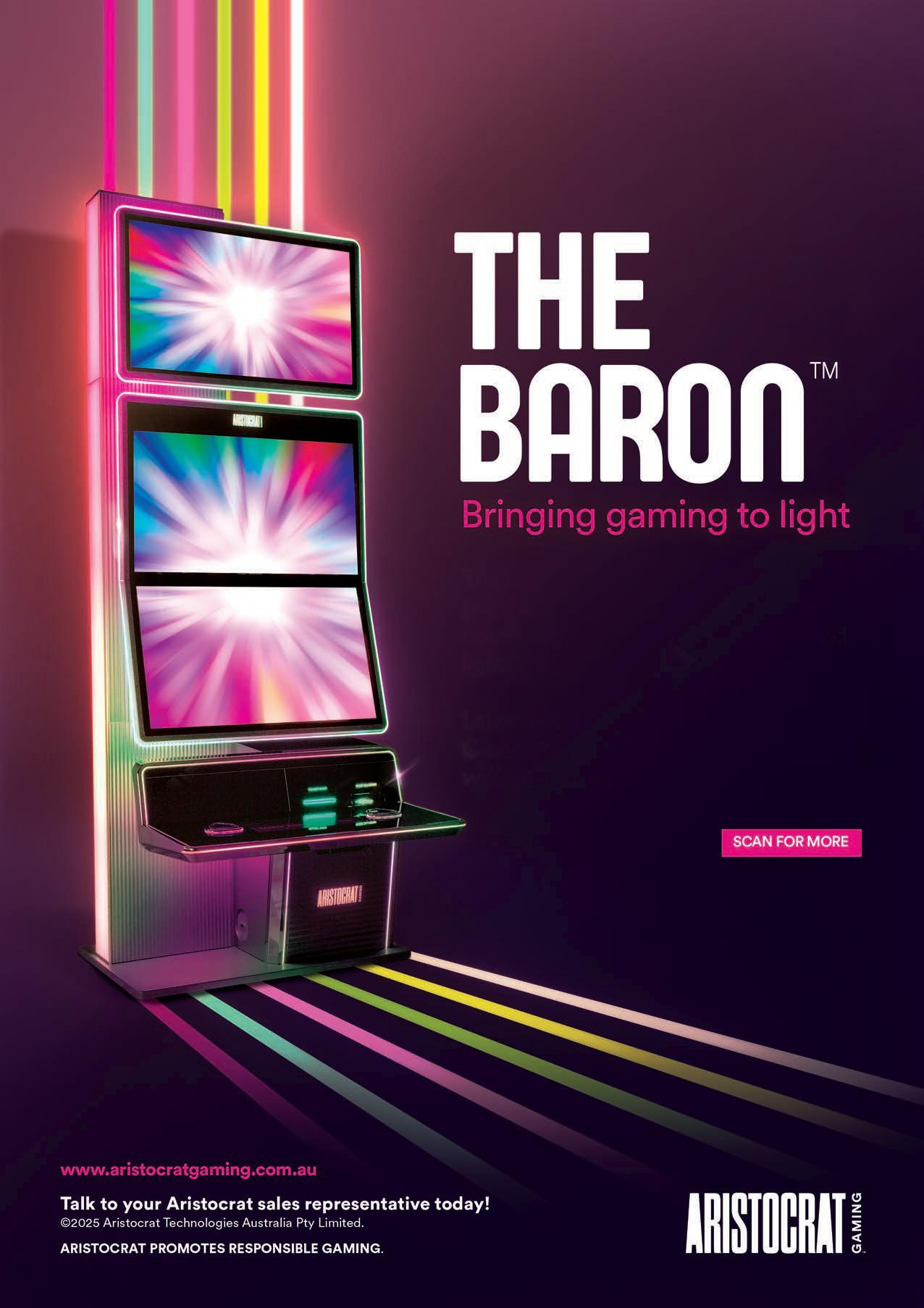

Around the world, decision makers are moving toward imposing stricter controls over STRA.
New York, Canada, London, Paris, Amsterdam, Berlin, and San Francisco (the birthplace of Airbnb) are just a few of the cities that have adopted regulations to address the rapid growth of short-stay accommodation.
In these more mature Airbnb markets there is a widespread understanding that sharing platforms are no longer just a place where mum and dad operators can rent out a room or their house for a few days.
Despite Airbnb’s protestations, they have demonstrated a willingness to comply with new regulations, when forced to.
Governments around Australia are starting to act, providing a blueprint for South Australia. Examples include:
• A state-wide registration process, a 90-day cap beyond which a DA is needed for the Perth region, as well as a financial incentive of $10,000 for owners to revert to long term rental.
• WA councils – Busselton, Broome, Fremantle WA: registration compulsory, with a fee and code of conduct. Fremantle has a two-night minimum.
• A 7.5% levy on STRA platforms for all accommodation revenue.
• Brisbane City Council requires a development application for STRA, the adoption of a development code and a rate surcharge increase on short-term properties of 65%.
• In August 2023, consideration by the Queensland government for compulsory registration
• Noosa Council: approval required for all STRA, application fee of $1,026 for unhosted with annual


renewal required ($400 house, $200 unit). Code of conduct.
• Byron Shire council - a limit of 60 days per annum on short term rental accommodation.
• The NSW Government has introduced obligatory registration and fees for short term rentals and a code of conduct. There is a limit of 180 days in Greater Sydney where the host is not present.
• In September 2023, Waverley Council (Sydney East) called for a statewide consideration of 60-day limit on Air BNB, noting that there were 3000 listings in their council area alone, 9% of dwellings.
• The NSW Government in early 2024 established a review into NSW’s current STRA framework, with one of the main drivers of the review being to release housing supply and trying to improve housing affordability.
• Tasmania – owners required to register with the council for a permit if non-hosted.
• Barossa Council – DA required for all STRA.
• City of Adelaide proposes to impose commercial rates rather than residential rates.
We believe the time is ripe for change in South Australia. We look forward to seeing the recommendations of the Select Committee and urge the State Government to take decisive action to fix the many problems caused by the unregulated growth of the short stay sector.
Anna Moeller, AHA|SA CEO

Find out how using the State Brand can benefit your business, be it a pub, club, hotel or bottle shop.
More than 10,000 South Australian businesses already proudly wear the State Brand, making them stand out for the right reasons.
More than just a logo, the State Brand is a symbol of local strength, credibility, quality, shared values and a future we’re building together in this state.
Show your community that when they pop in for a drink or share a meal with family and friends, they’re supporting a business that’s local, dependable, welcoming and built for what’s to come.
Register to use the State Brand on your website, socials or signage today.
• It’s free
• It’s fast
• It’s simple to apply
And it’s yours to use, right now, apply here.
If you’re a South Australian business, it’s likely you can register. Once registered, you’ll receive access to marketing support, leveraging Brand SA’s reach and promotional campaigns, like Buy SA. For SA. and Buy SA Week, a celebration of all things SA, which is coming up from 28 July to 3 August 2025.
The State Brand. Make it your business.


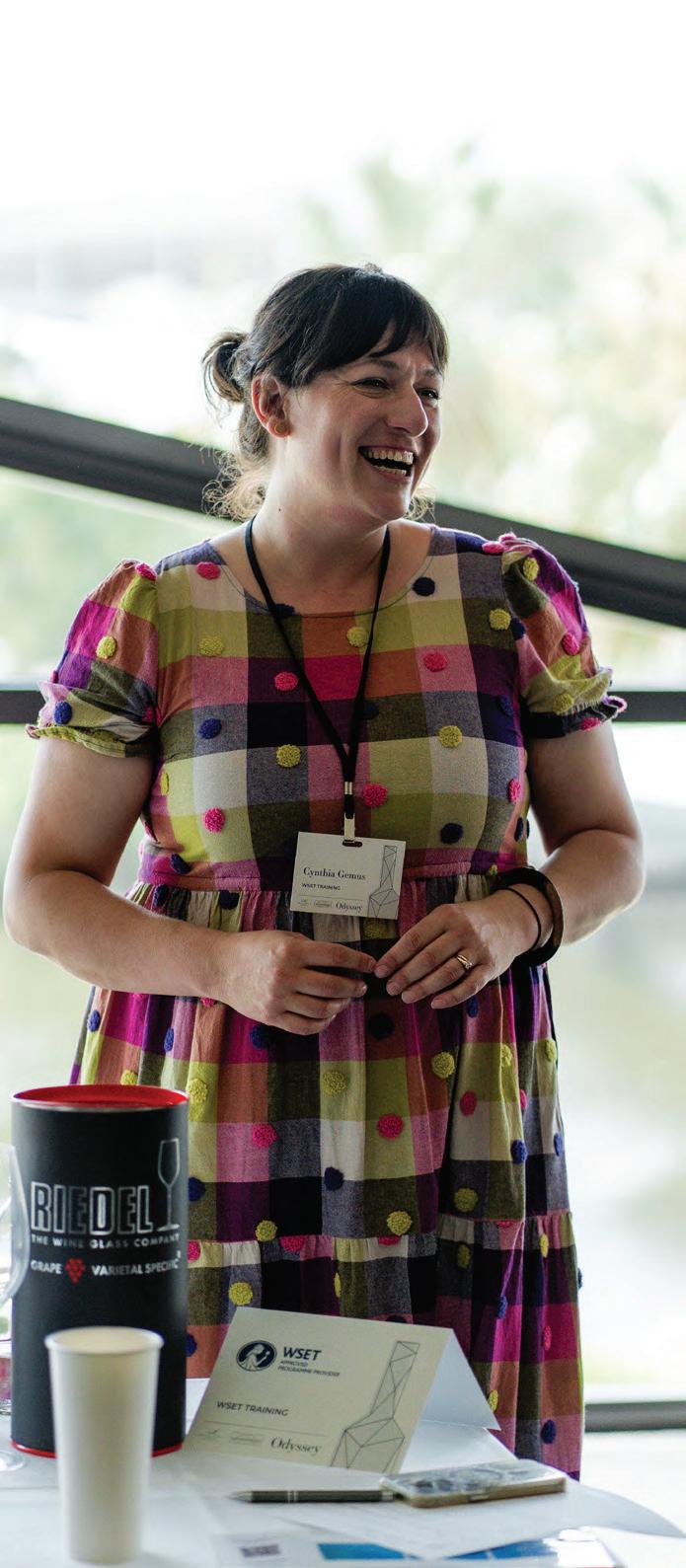
Wine education is the answer for confident and passionate hospitality employees.
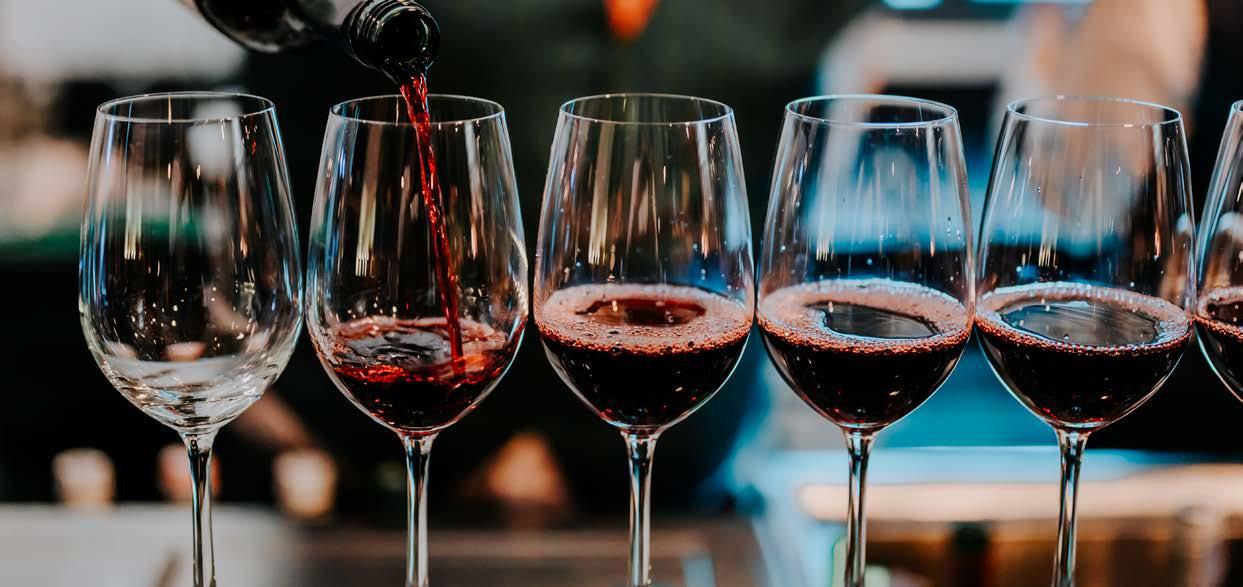
In today’s competitive hospitality industry, delivering a top-notch customer experience can set your venue apart. One of the most effective ways to enhance service and boost sales is through wine education.
Samuel Smith & Son (inc. Negociants Australia) offers the internationally recognised WSET (Wine & Spirit Education Trust) wine education program, a powerful tool for hospitality professionals aiming to increase their expertise, confidence, and customer engagement. By enrolling your staff in one of these WSET courses, you are investing in their skills and, ultimately, the success of your business. Knowledgeable staff are equipped to provide a more engaging and informative customer experience, which not only boosts customer satisfaction but also encourages upselling and increased wine sales. An educated team can therefore enhance both the customer experience and your bottom line.
But the benefits of wine education go beyond sales. Staff retention is a common challenge in hospitality, yet investing in professional development through programs like WSET shows your employees that you value their growth. This commitment to their education

helps build loyalty and reduces turnover, saving you the time and cost of constantly hiring and training new staff.
The WSET qualifications is globally recognised and highly respected within the industry, making it an invaluable asset for your team. By upskilling with this qualification, your staff will gain a strong foundation of knowledge, boosting their credibility and enabling them to grow alongside your business, contributing to its continued success.
Led by Cynthia Gemus, a passionate wine educator with a background in hospitality and the recipient of Wine Communicators of Australia’s "Best Wine Educator Award", the program offers both expert knowledge and a personal, relatable approach. Cynthia’s engaging teaching style ensures that classes are not only informative but also fun and interactive.
As a bonus, students will have the opportunity to taste a wide range of wines from Samuel Smith & Son and Negociants' expansive portfolio, giving them hands-on experience with some of the finest wines available. Whether you’re based in the bustling city or away from the big smoke, we can tailor our programs to meet your needs. We have the ability to travel to regional areas, ensuring that every venue can benefit from this exceptional educational opportunity.
Empower your staff, improve customer experiences, and increase sales by enrolling them in the WSET wine education program today.



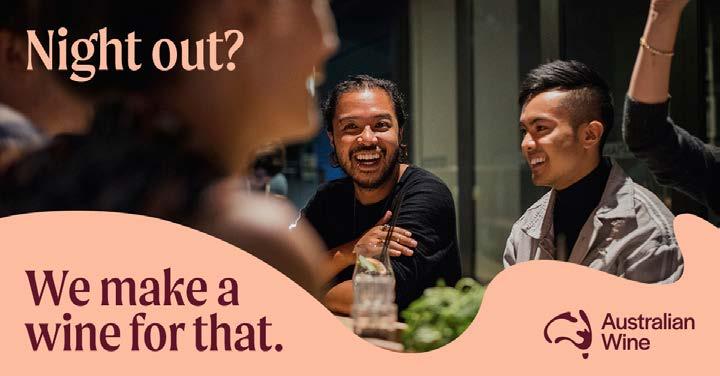
Members are being urged to get behind a new campaign that reframes how domestic consumers connect with Australian wine. The message is clear, powerful and proudly local: ‘We make a wine for that.’
This new campaign invites hotels to connect with Australian drinkers by celebrating the quality and diversity of Australian wine.
With alcohol consumption increasingly shaped by shared experiences, lifestyle rituals and a desire for meaningful connection, now is the time to ensure Australian wine is seen as a relevant option for the occasions that define today’s culture.
Developed by Wine Australia, the new campaign responds to clear sector feedback. Data reveals a shrinking wine drinking population, making it critical to retain existing consumers across a broader range of consumption occasions and re-engage those who have low category engagement or who are choosing alternative alcoholic beverages.
BUILD DOMESTIC MARKET SHARE
Businesses are encouraged to download the free campaign toolkit and begin planning events and activations from August onwards that reflect occasionbased consumption; moments that
bring the ‘we make a wine for that’ message to life in a way that fits their brand.
“Highlighting Australian wine’s relevance for more occasions was clearly identified as a strong platform to build the campaign around,” said Dr Martin Cole, CEO of Wine Australia.
“We already make world-class wines that belong in those moments, so this is our opportunity to remind people of that and give them confidence in choosing Australian wine.
“The real value here is relevance. Showing Australian wine as a relevant option for the moments that matter, with messaging that makes Australian wine feel familiar, local, and easy to choose. We encourage the sector to get behind this campaign, to amplify the message and impact purchasing behaviours for the benefit of the sector,” said Dr Cole.
Nick Waterman, Chair of the Joint Marketing Group said “this campaign is about giving the sector a fresh way to engage Australian consumers and reinvest in the Australian wine story.
“It is an opportunity for the industry to stand united and have a consistent message about the importance of wine and the role it can play in different occasions. It’s not telling people what to drink or why. It’s about showing up in the
moments they already value and making Australian wine accessible and appealing.”
He added: “Whether you’re a familyrun cellar door, a large brand, or a local wine bar, there’s space to make this message your own. The opportunity is to make Australian wine feel relevant to the moments that matter to our consumers, and this campaign gives us the tools and language to do that.”
The campaign toolkit, available now at wineaustralia.com/ wemakeawineforthat , includes free, ready to use assets such as logos and graphics, social media assets, point of sale materials as well as adaptable templates for businesses to customise with their own imagery and branding.
Businesses are also encouraged to submit campaign-related events or activations taking place from August onwards to the national events calendar. These can range from tastings, in-store promotions, venue collaborations to themed digital campaigns – anything that brings the campaign to life. Submitted events will be featured on a consumer-facing campaign website, helping to drive awareness and foot traffic. The event calendar will be a key promotional tool in national media and PR activity during the consumer rollout from August.
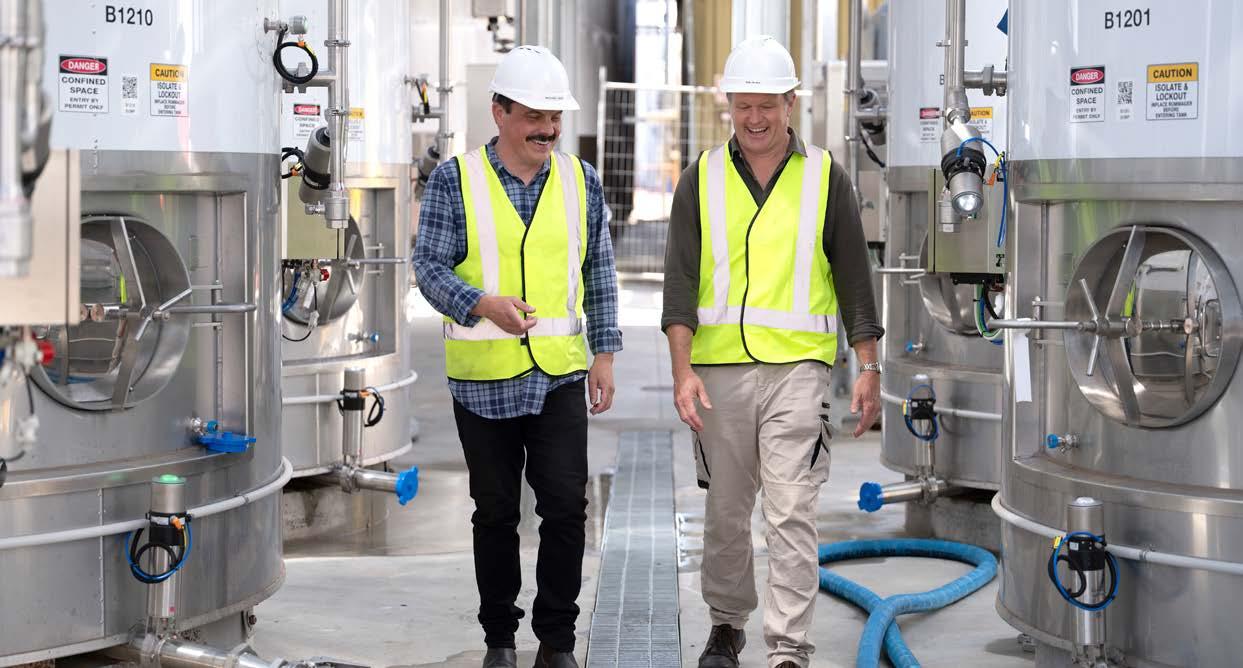
AHA|SA Corporate Partner, Treasury
Wine Estates (TWE), has unveiled an innovative new approach to perfect the art of creating ‘low and no’ wine.
In mid-June it opened an innovative new $15 million in-house facility in the Barossa Valley.
More than two years in the making, the new facility features state-ofthe-art dealcoholisation technology, complemented by world-first patent pending processes for treating the aromatic component of wine that locks in flavour.
It houses customised, exclusive equipment alongside proprietary processes that delicately process the wine’s extracted essence as part of the dealcoholisation process. This allows winemakers to protect the components responsible for the wine’s flavour and fragrance.
The system has been designed to overcome challenges with existing processes for removing alcohol from wine that change its chemistry and impact richness, body and ‘mouthfeel’.
“This world-leading facility cements our position as a global pioneer in winemaking,” said TWE Chief Supply and Sustainability Officer Kerrin Petty.
The facility is producing the next generation of low and no alcohol wines for iconic brands in TWE’s global portfolio including Squealing Pig and Pepperjack, which will complement other low and no alcohol offerings in the Matua, 19 Crimes, Lindeman’s, and Wolf Blass brands.
Joining these established global brands is the new-to-market Sorbet, which blends traditional varietals like Prosecco, Rosé, Sauvignon Blanc, and Shiraz with fruit and berry flavours such as passionfruit, mango and lemon, and a lower ABV of 8%.
Sorbet will be available from October 2025 in partnership with Endeavour Group.
Research from the global authority on beverage alcohol data and intelligence, IWSR, forecasts a 5%
compound annual growth rate for the no and low alcohol wine market between 2024 and 2028. Data shows that 50% of wine drinkers are reducing their alcohol intake, but taste continues to be the biggest barrier to purchasing wine that’s lower in alcohol.
TWE was an early pioneer in the no and low alcohol category, introducing a range of Seppelt lowalcohol wines in 1993.
Sarah Parkes, General Manager of Sales and Marketing for TWE’s global premium division, said the expansion of its no and low alcohol range reflected the growing popularity of the category.
“Flavour has historically been a barrier for wine drinkers exploring a no or low alcohol alternative – this technology has helped us solve the flavour puzzle, and it’s had outstanding feedback from consumers so far,” she said. “With award-winning low and no alcohol wines already under our belt, we’re looking forward to sharing this next generation of great-tasting wines with consumers from next month.”

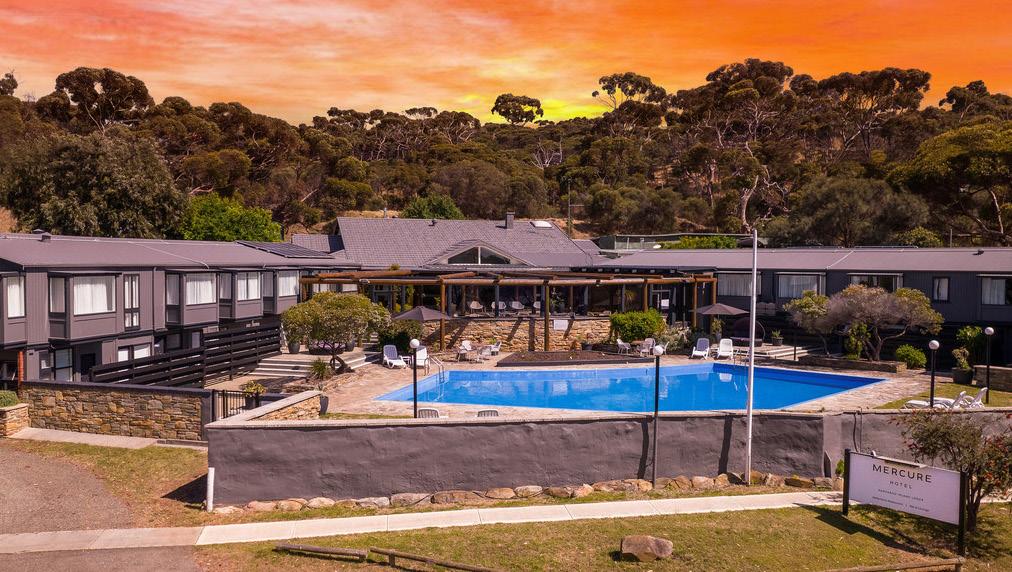
Local success story 1834 Hotels is now moving into international markets as a boutique third party operator (TPO).
The South Australian-based company has built a national portfolio of hotels, motels and resorts - and is now expanding into New Zealand and exploring opportunities across Southeast Asia.
With approximately 60 hotels under management, over 1,500 staff and a turnover around $250 million, it has quietly become one of Australia’s leading TPOs.
1834 Hotels offers “white label” support for independent and branded accommodation providers. Services include strategic, operational, finance, WHS, sales, marketing and revenue management.
Securing new work in New Zealand represents the first step in an international phase for the business.
“We’ve just gone into Auckland and we’re looking at a couple of other opportunities there,” according to CEO Andrew Bullock.
“We’re also starting to look at Southeast Asia. That’s the next horizon for us.”
He said the move offshore is driven by opportunity and scale.
“With scale comes the ability to attract and retain top-tier talent; people who can deliver high-level outcomes at hotels that otherwise wouldn’t have access to that kind of expertise.”
He cited the example of a 60-room hotel in regional SA.
“Such a hotel could never normally afford a national-level revenue
specialist, but because they’re in our network they get access to that expertise.”
1834 Hotels has been operating nationally for years and now runs properties in every state except the Northern Territory.
It was originally built as a boutique third-party operator, working behind the scenes to manage independent and branded hotels on behalf of owners, franchisors and investors.
While some growth has come organically, a major shift occurred during post the pandemic.
“When the Elanor portfolio came back into the mix, that enhanced the offer quickly,” Andrew said.
Before COVID, 1834 Hotels had managed Elanor’s properties, which due to challenges during Covid was
in-housed by the Elanor group. But when the ASX-listed fund looked to exit the hotel space and started selling down, 1834 Hotels was wellpositioned to take over operations and support the divestment process.
“They were looking to divest hotels which in turn would lose scale for their in-house operations, while we had scale and could expand,” Andrew said. This was further supported by the opportunity for 1834 to take over a number of the in-house team members from Elanor, giving us access to some amazing talent which further fuelled our opportunity to grow.
The Elanor portfolio added 18 hotels to the group initially, substantially increasing staff, systems and operational complexity - but it also reinforced the group’s capacity to operate at scale.
The company's footprint now includes head offices in Adelaide and Sydney, staff in Melbourne, Tasmania and Asia, and a decentralised team supported by cloud-based systems and AIpowered platforms.
“Post-COVID, we’ve proven we can work from anywhere,” said Andrew. “Teams and technology let us operate nationally, without being tied to one city.”
1834 Hotels is one of Australia’s few genuine white-label hotel operators - a model far more common in the US and Europe, where third-party management accounts for up to 80% of the market.
The company works under franchise agreements, management contracts or owner-direct models, offering tailored support.
“We’re the original white label in Australia,” said Andrew.
“Others have entered the market in the last decade but we’ve been doing it the longest.”
“We’re also starting to look at Southeast Asia. That’s the next horizon for us.”
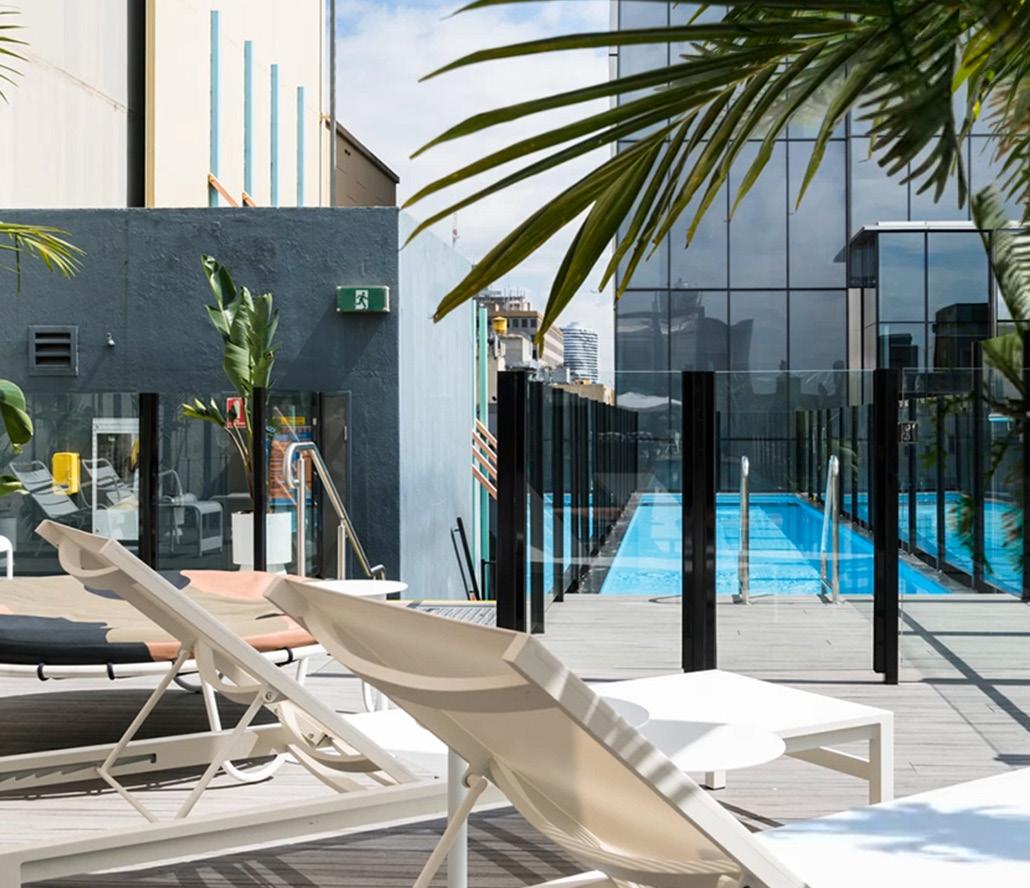
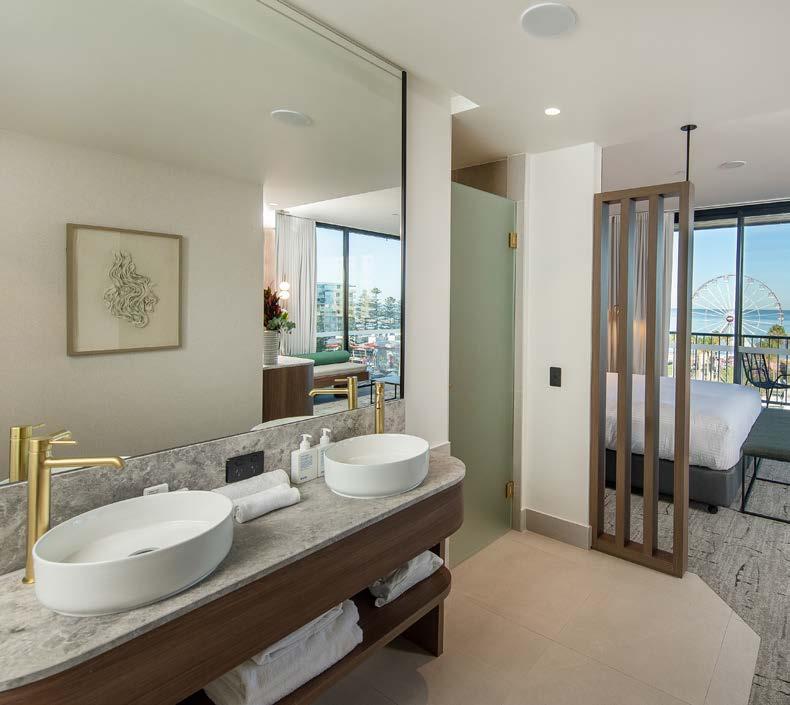
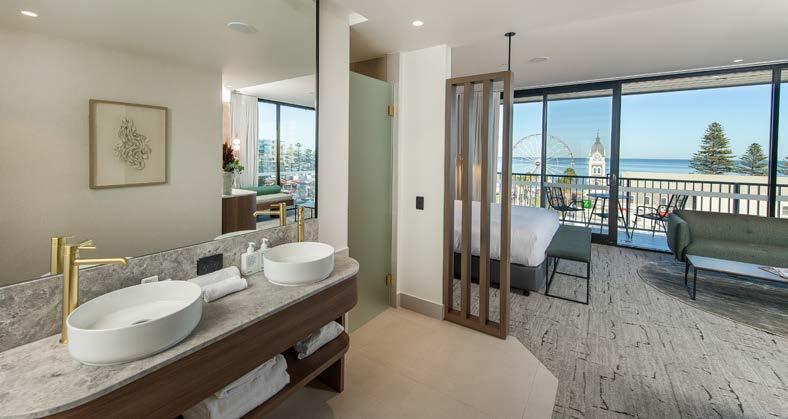

Each hotel receives a tailored approach.
“We’re not one-size-fits-all,” said Andrew. “Every owner has different goals. One might want to hold staff and invest. Another might be cashstrapped and cutting costs.
“We work with them individually.”
The model is particularly effective for regional and mid-market hotels. These properties don’t have the internal resources to compete with major city properties - but still want strong performance and professionalism.
The US and European markets are driving inspiration for the company’s future.
“In the US, the third-party operator model is absolutely dominant. It’s a brand-focused market but the operations are nearly all handled by TPOs,” Andrew said.
“That’s where we’re heading in Australia and as a company, we’re well ahead of that curve.”
Another way 1834 Hotels is staying ahead is by embracing technology, particularly AI.
“We’ve reduced entire departments through intelligent automation,” Andrew said. “Not because we wanted to cut people but because it allows us to reallocate our people to do more meaningful work.”
Guest communication, checkins, upgrades, room access and
upselling are now all handled through kiosks and apps.
“You can now check in, get your key, upgrade your room, and buy a bottle of champagne - all before you step into reception.”
“Anyone saying the jury’s out on AI just doesn’t understand it. It’s not coming, it’s already here.”
1834 Hotels is clear about its position: boutique, responsive and expanding. While its base remains in South Australia, its reach is international - and growing.
“We’re still tailored. We’re still boutique. But we now have the scale to compete with anyone.”
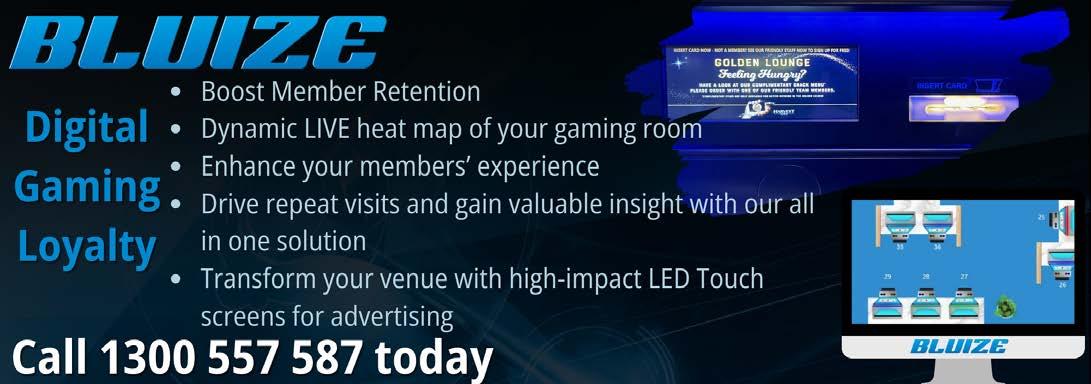

Andrew was recently appointed to the board of Accommodation Australia, where he is a voice for regional and independent operators. He is also Chair of Accommodation Australia’s South Australian Division.
He said it was important that the board reflects the full diversity of the sector — not just five-star hotels in Sydney and Melbourne.
“The world of accommodation doesn’t end at the borders of the Sydney CBD.
“Yes, that’s a hot market, but the heavy lifting is being done in regional Australia.”
He said regional hotels play a vital role in their communities, not just in terms of beds but in employment and local economic flow-on.
“These are the places that keep communities alive. They offer jobs for young people, working mothers, semi-skilled and unskilled workers.
“Holding communities together is a really important part of what pubs do.
“Accommodation provides an additional layer to that because it's a net exporter; tourists are spending money that we otherwise wouldn’t have.
“Every time we bring somebody to a regional area, that provides revenue
for a local community and creates jobs from the local hairdresser, the town’s supermarket and so on.”
1834 Hotels is a strong supporter of targeted migration and uses the Designated Area Migration Agreement (DAMA) to bring skilled workers into Australia.
“We’re huge advocates for it,” Andrew said.
“Yes, we need chefs but we also need housekeepers, receptionists, back-of-house staff etc.”










BY OWEN WEBB & SARAH LEGOE

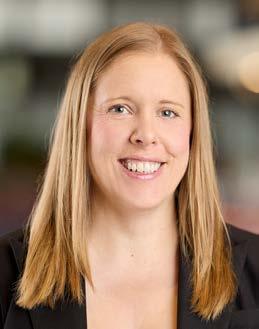
On 3 June 2025, the Fair Work Commission Annual Wage Review Panel (Panel) handed down their decision in the 2024-25 Annual Wage Review. In this article we look at the increase that was awarded, the impact for hotels and what preparation is required to ensure that hotels are compliant with the changes.
The Panel decided to increase the National Minimum Wage and all modern award minimum wage rates by 3.5% effective from the first full pay period commencing on or after 1 July 2025.
As a result, those employees employed pursuant to Modern awards in the hotel and retail sector such as the Hospitality Industry (General) Award 2020 (HIGA), Restaurant Industry Award 2020 (RIA) and General Retail Industry Award 2020 (GRIA), will see their base rate of pay increase by 3.5%.
The minimum wage will increase from $915.90 per week, or $24.10 per hour, to $922.70 per week or $24.28 per hour from the first full pay period on or after 1 July 2025.
The Panel as part of the Annual Wage Review process received submissions from various interested parties including state and federal governments, unions and employer associations.
The Australian Council of Trade Unions sought a 4.5% increase to minimum and award wages. The Australian
Chamber of Commerce and Industry supported an increase in minimum and modern award wages of no more than 2.5% (plus the final legislated 0.5% Superannuation Guarantee increase in 2025).
In determining the level of the increase, the Panel too into account a number of factors including the current level of inflation, the impact a wage increase may have on inflation moving forward, business profit growth, labour market strength together with the consistently low productivity figures from the nation and the fact the superannuation guarantee was to increase by a further 0.5% on 1 July 2025.
The AHA|SA will prepare updated wage schedules reflecting the Panel’s change to award rates of pay. The schedules will be available to download from the Workplace Relations Tab on the AHA|SA website prior to 1 July 2025. Wage schedules are available for the following Awards:
• Hospitality Industry (General) Award 2020
• Restaurant Industry Award 2020
• General Retail Industry Award 2020
• Registered & Licensed Clubs Award 2020
A more detailed Wage Rate and Allowances Guide for the Hospitality Industry (General) Award 2020 and the General Retail industry Award 2020 has been developed and is also available on the AHA|SA website.

Those members who have an Enterprise Agreement in place will be affected if the wages in their agreement are less than the minimum rates in the relevant modern award as at the first full pay period commencing on or after the 1 July 2025.
In accordance with section 206(1) of the Fair Work Act 2009 (Cth) the base rate of pay under an enterprise agreement must not be less than the base rate of pay that would be payable to the employee under the modern award if the modern award applied.
Members will need to review any salary arrangements for Award or Enterprise Agreement covered employees and which have been calculated in accordance with an applicable Award or Enterprise Agreement to ensure the salary is sufficient in line with the relevant Award or Enterprise Agreement provisions.
Members need to ensure that they review the salary of an employee who is paid pursuant to clause 24 of the HIGA – Annualised Wage Arrangements or clause 20 of the RIA. An employee who is paid under an Annualised Wage Arrangement under either of these Awards must be paid at least 25% more than the minimum wages prescribed in the relevant Award for the work being performed. Accordingly, such employees’ salaries need
to be reviewed to ensure that they are at least 25% more than the new weekly wage prescribed the relevant Award for the wage level applicable to the employee’s position effective from the first full pay period on or after 1 July 2025.
)
Members need to ensure that for any managerial employees who are paid a salary in accordance with clause 25 of the HIGA – Salaries Absorption, the salary needs to be at least 25% above the minimum annual salary in clause 18.2 of the HIGA – Managerial staff (Hotels).
Whilst clause 24 and clause 25 of the HIGA (and clause 20 of the RIA) place obligations on employers to ensure that their employees are paid at least the minimum salary in those respective clauses, some members will be paying salaries that are well above the minimum salary obligations in these clauses.
If an employee is paid a salary well above the employer’s minimum salary obligations under clause 24 and clause 25 of the HIGA or clause 20 of the RIA, the employer does not have to increase the employee’s salary by the percentage increase awarded in the Annual Wage Review, provided the employer is still meeting the minimum salary obligations under these clauses and there is no clause in the Contract of
Employment that would require an increase to be provided.
If an Individual Flexibility Arrangement (IFA) is in place between an employee and their employer in accordance with a Modern Award or an Enterprise Agreement, members will need to review the IFA to ascertain whether any increase to the modern award wages affects the IFA. Remembering that an IFA must result in the employee being better off overall at the time the IFA is made than if the IFA had not been made.
Hotels that use an external payroll provider should communicate with their provider to ensure that the new rates effective from the first full pay period on or after 1 July 2025 are loaded into the payroll system.
Members should refer to the Contract of Employment to determine whether the wage or salary of an Award or Enterprise Agreement free employee needs to be reviewed at this time, and if that review needs to be conducted in line with the decision of the Fair Work Commission. If the contract is silent on a wage review, then it will be up to the employer and the employee to determine when (and if) the wage or salary is reviewed and if any increase is awarded.
The Superannuation Guarantee percentage rate payable to employees will also increase by 0.5% on 1 July 2025 to 12%. The new rate will be applicable from 1 July 2025, not the first full pay period on or after 1 July 2025. This is currently the final legislated increase to the superannuation guarantee rate.
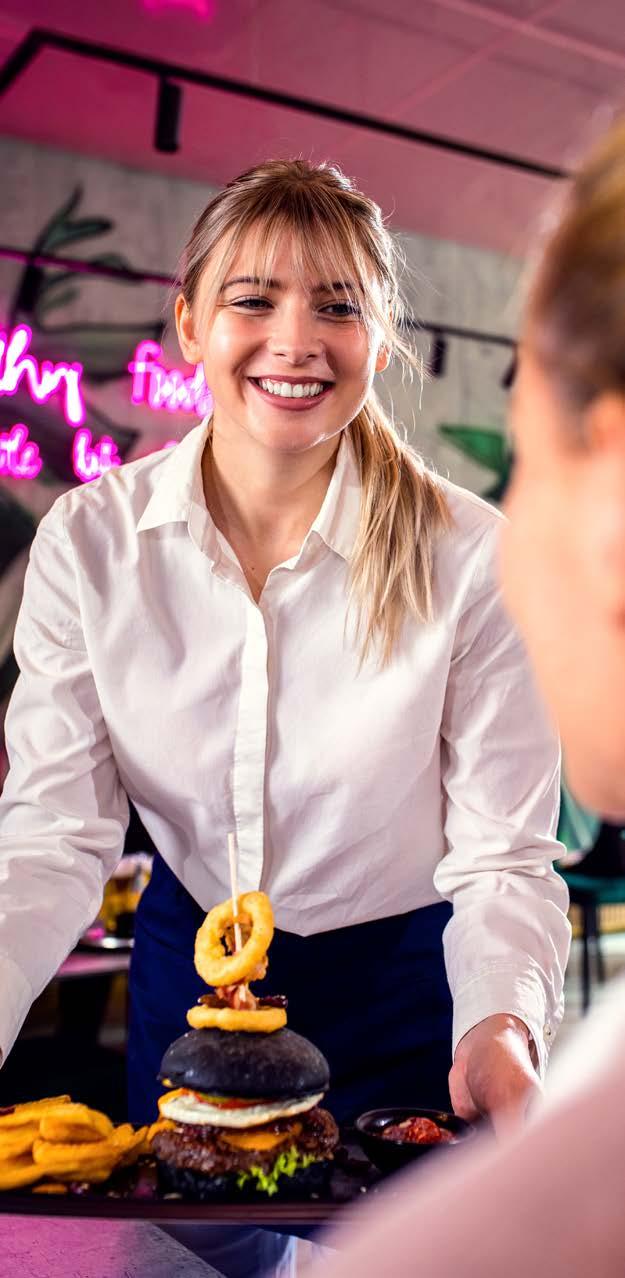

Thanks to Balhannah Hotel Operations Manager, Greg Ryan, Sognia, Maddie, Johnny G, and their entire team for hosting the AHA|SA’s Adelaide Hills/South Coast Regional meeting and luncheon in May. The newly renovated beer garden, perfect weather, and hospitality brought the day to life! We had a fantastic turnout from members and corporate partners and thank everyone for attending.























Fantastic turnout at the Yorke Peninsula AHA|SA regional meeting Coobowie Hotel . A massive thanks to Sheree, Michael and their wonderful team along with all AHA|SA members and corporate partners who attended.









Thanks to publicans Amanda, Chris, Andy and The Greenock team for hosting the AHA|SA’s Gawler / Barossa Regional meeting and luncheon.








The AHA|SA’s 154th Annual General Meeting was both a celebration of recent achievements and a candid outline of the pressing issues facing the hotel sector.
The event was attended by senior politicians, government advisors, industry partners and members. Held at member venue, the Adelaide Oval, it provided a comprehensive overview of the year’s successes and challenges.
The following is taken from AHA|SA President, David Basheer’s, speech on the day.
A financial surplus of $734,410. This outcome was described as "truly a full team effort", highlighting the work of Secretary/Treasurer Sam McInnes, CEO Anna Moeller and the AHA|SA staff. 2024 also marked the fifth consecutive year of record membership.
A standout achievement was the successful merger with the Accommodation Association. Katherine Taylor, the outgoing Tourism and Accommodation Manager, was praised as a "key figure in our national merger," ensuring that SA’s integration was the smoothest in the nation. Accommodation membership has grown considerably.
Major events were cited as “the bedrock of our industry” and increasingly vital to the hotel economy. The President expressed gratitude to the Premier, Peter Malinauskas, for his personal efforts in this regard.
A central concern was the escalation of crime and antisocial behaviour that is impacting hotels. Pointing to "generations of policy failure”, the AHA|SA is calling for:
• Tougher penalties for repeat offenders
• Enhanced security measures
• Greater support for hotels and staff.
See President’s Report in this issue for more details.
Labour shortages remain a significant challenge, especially with anticipated reductions in migration numbers. The President questioned "who is going to fill our jobs for chefs, restaurant managers, housekeepers - the list goes on" and expressed concern about cuts to working holiday maker visas.
He also pointed to public sector employment conditions that are excessively ‘generous’, making it almost impossible for private sector companies to match.
"Tax payer funds can not be used by the bureaucracy to solve their labour shortage problems at the expense of … small and family and business owners."
The AHA|SA has developed submissions on several key issues, including:
• payroll tax reform
• skills and training
• red tape reduction
• energy and insurance costs
• licensing issues
• winter tourism
• crime.
The need for real action and government support, including in areas such as security upgrades to prevent crime, citing the interstate example where financial assistance has been provided.
The 154th AGM concluded on a note of optimism and gratitude.
"Our strength stems from the ongoing support and commitment from the people in this room,” said David.
“I thank each and every one of you for the role you continue to play in our Industry – an industry that will always be the heartbeat of its local community and a key driver for this State’s economy."
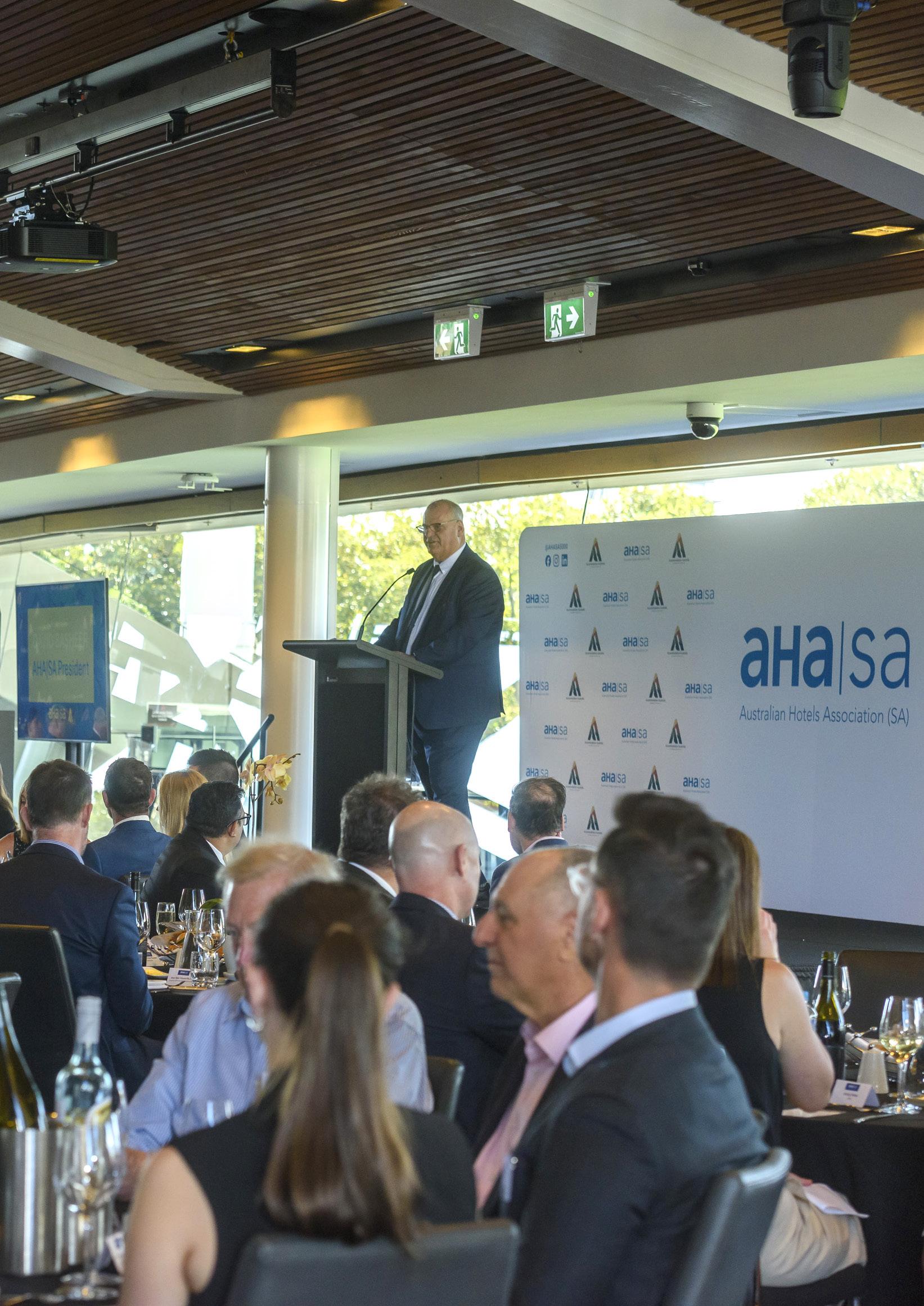

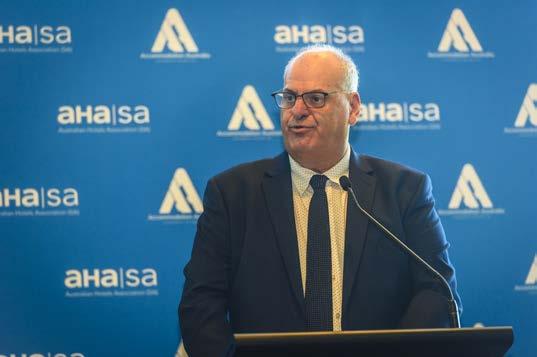

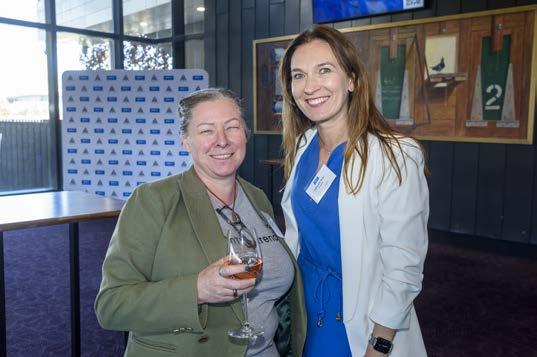

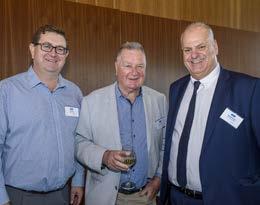


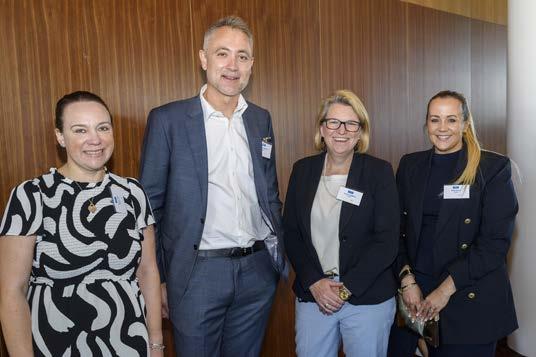

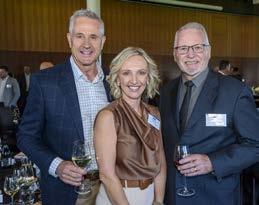
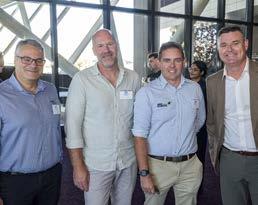
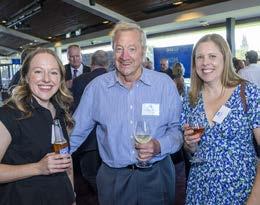
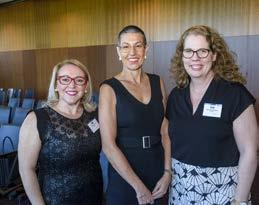



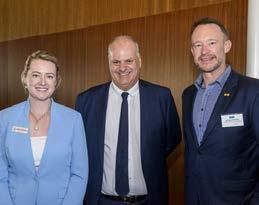
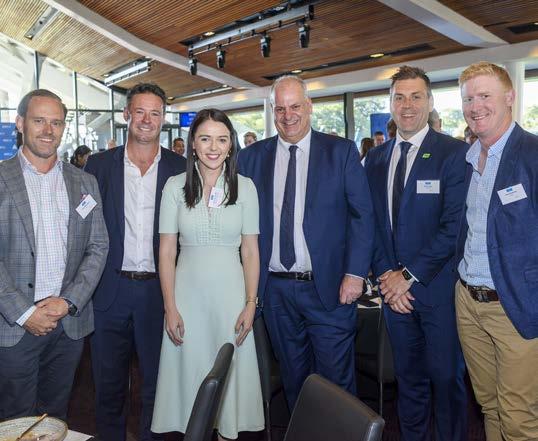


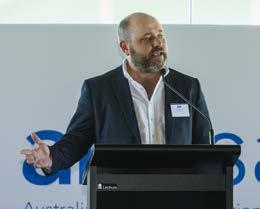
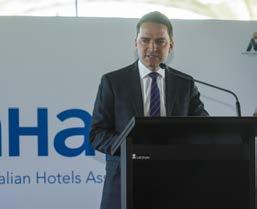
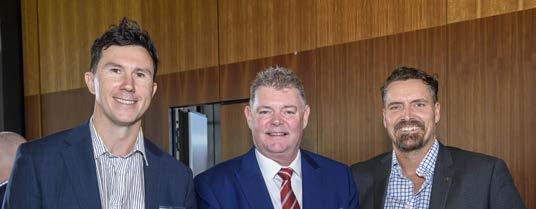
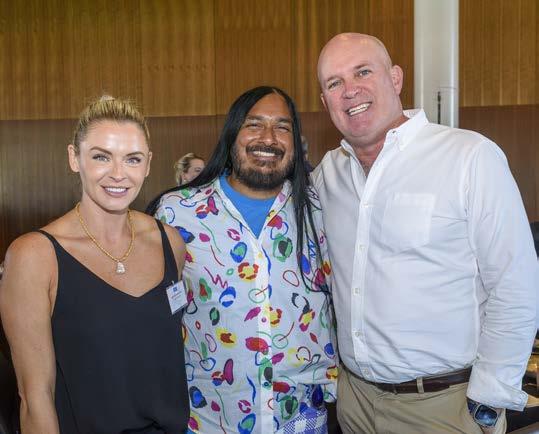

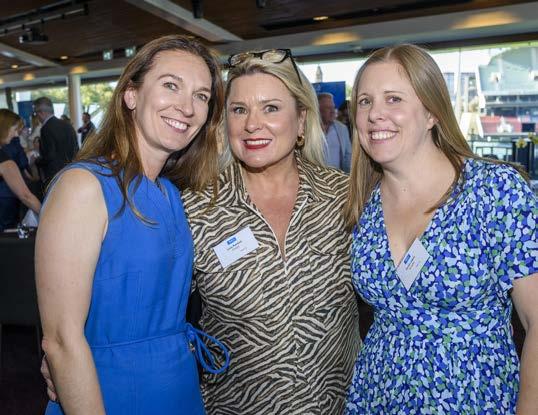

From the fields of Ballarat to the kitchens of Barossa, McCain’s commitment to supporting local growers and operators is at the heart of everything they do. For over 50 years, they’ve backed Aussie farmers and the venues that turn their spuds into something special.
This is a story about how great chips start in the soil – and become the crisp, golden fries that Australians know and love.
It all starts in Ballarat with Chris Stephens, a fifth-generation potato grower who lives and breathes spud life. “Together with my family we grow potatoes mainly,” he says. “We’ve been on the same farm for well over a hundred years.” The family’s relationship with McCain began in 1968, when McCain first came to Australia.
For Chris, potatoes are more than a crop – they’re a passion. “My wife says to me they’re like my babies,” he admits.
Ballarat’s warm days, cool nights, and rich volcanic soils make the region prime territory for growing potatoes like the Innovator, the
main variety Chris and his family grow for McCain. “It’s a great potato,” he explains. “We get good yields, it’s good quality so we get lower defects. In the factory it processes really well, which means there’s less waste and it’s a more sustainable potato than some of the older varieties.”
Chris knows that the perfect potato is the secret behind every plateworthy chip. His ideal? “For us, a good potato is a nice, oval, 5-6 inches long so that it fills the plate,” he says. “You get those nice long chips that French fries are obviously renowned for.”
Once harvested, Chris’ spuds are transported to McCain’s cool stores, ensuring they’re kept in pristine condition before being processed into chips. They then head out to pubs, cafés, and restaurants across Australia, where we meet the second Chris of this story: Chris Adams, owner of the Greenock pub in the Barossa Valley.
The Greenock pub has been a Barossa staple for over 160 years, and Chris Adams, who took over
with his wife, son, and daughter nine years ago, is proud to continue that tradition.
When the family bought the pub, they knew that a quality meal started with the best ingredients. “Our pub menu is wholly and solely reliant on a quality chip,” explains Chris. “There were a few suppliers who wanted to put in an opposition chip and we found that McCain’s products were far superior.” A chip that was born and bred in Australia was a major bonus. “Customers love Australian-produced product.”
Each Chris agrees that working with McCain is more than just business. It’s about community and connection. Says Ballarat farmer Chris Stephens, “It feels good to know that you’ve played a part in feeding the local community.”
Over in Barossa, publican Chris knows what keeps his customers happy. “The Greenock secret to repeat business is good quality food, good suppliers, and consistency. Without consistency you can’t bring people back,” he says.
Discover McCain’s local range here




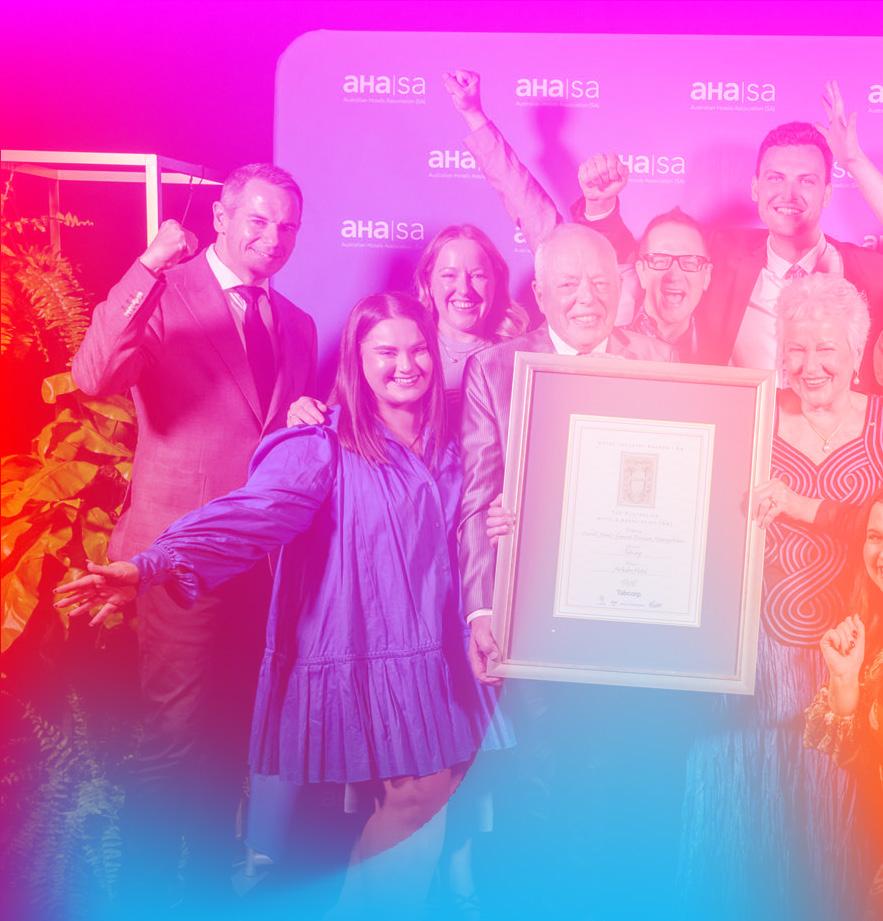

The AHA|SA Awards for Excellence are recognised as the most prestigious awards in the hospitality industry, honouring the achievement of excellence in a wide range of categories. This on-going commitment to excellence ensures our state’s hotels are some of the best in Australia. We strongly encourage AHA|SA members to enter!
NOMINATIONS CLOSE: FRIDAY 4 JULY 2025
JUDGING PERIOD: MONDAY 14 JULY – FRIDAY 12 SEPTEMBER 2025
NATIONAL AWARDS: 2025 HOTEL INDUSTRY AWARDS FOR EXCELLENCE - TUESDAY 21 OCTOBER 2025 AWARDS.AHASA.COM.AU
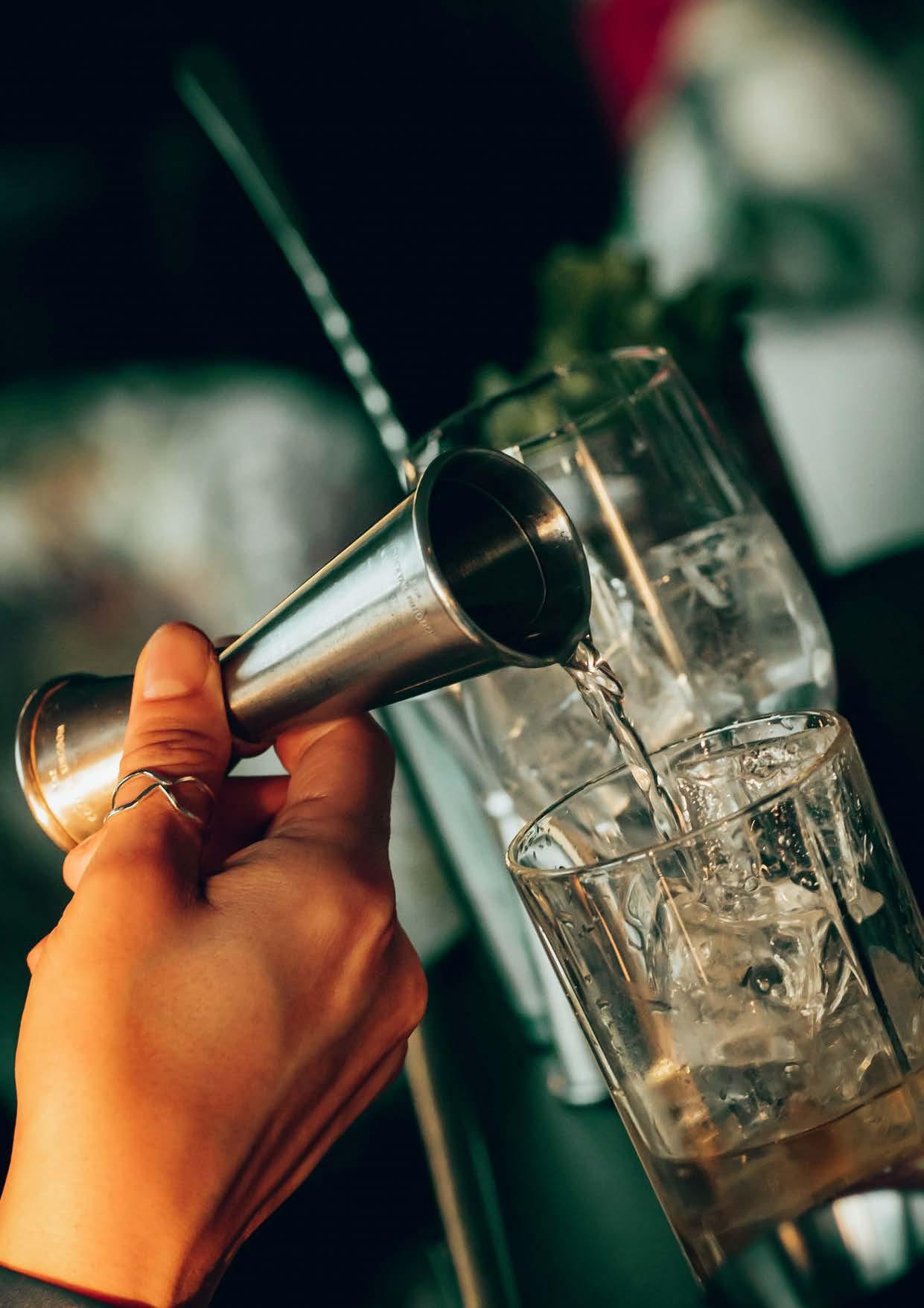
The days of sipping on an insipid Fluffy Duck in a dark pub lounge are a thing of the past. In 2025, pubs are mixing it with small bars in the cocktail stakes.
From the regions to the CBD, clever bar staff are creating new libations for a new generation. Here are two that are hitting all the high notes.

McGregor's Garden – The Stirling Hotel, Stirling.
Creator: Christine McGregor
:
Inspired by making carrot cakes on the farm during winter holidays I spent with my grandparents as a kid.
All the while watching the rabbits in the garden (my favourite which I named Peter from The Tale of Peter Rabbit by Beatrix Potter).
A drink with a sweet nuttiness with a hint of winter spices. A creamy like texture with a tangy finish.
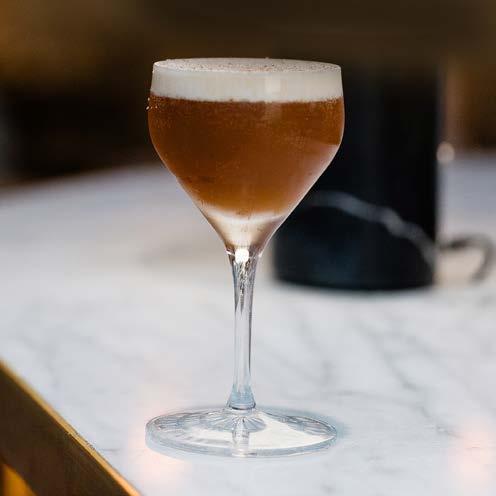
RECIPE :
• Cinamon
• Ginger
• Carrot
• Mable syrup
• Olorosso
• Jameson
• Walnut bitters
Topped with Lemoncello, cream cheese foam and fresh nutmeg.
RECIPE :
First; rim a short glass using ice magic and flake chocolate crumbs
In a shaker with ice:
• 30ml Baileys
• 15ml Vodka
• 15ml White Crème de Cacao
• 15ml Frangelico
• 30ml Green Mint Syrup
• 30ml Chocolate Syrup
Shake hard over ice, then double strain into your short glass with chocolate rim and a scoop of ice. Garnish as desired; using a wafer stick and fresh mint really show and tie in all the flavours, plus eating the wafer at the end provides a delicious crunch!

The Aero Shake – South Australian Hotel, Mt Gambier. Creator: Tayla Waters

BACKSTORY :
The Aero Shake was born while I was putting together a winter cocktail list at work—think cold nights, cozy drinks, and a little nostalgia. After a lot of experimenting, this one was the clear winner. It’s smooth, rich, minty, chocolatey goodness that tastes just like an Aero bar (my all-time fave). It is a hidden gem that delivers exactly what it promises from the first sip.
South Australia's hotel sector is “bucking the national trend”, posting consistently strong occupancy rates compared to any other states .
While accommodation markets across Australia show signs of slowing or stagnating, SA continues to deliver consistent month-onmonth results.
James Goodwin, CEO of Accommodation Australia, said this performance was the result of “smart diversification”.
“South Australia’s operators have deliberately built a market that doesn’t rely on just one type of visitor,” he said.
The state is attracting a mix of general tourists, event-goers (eg. LIV Golf, Gather Round, Festival and Fringe), business guests and regional visitors which is helping hotels stay busy even in traditionally quiet periods.
“It’s about evening out the peaks and troughs,” James said.
“Instead of boom and bust months, we’re seeing a more stable rhythm in bookings in SA.”
That stability is being noticed.
In a national environment where some regions are struggling to

fill rooms mid-week or outside school holidays, South Australia is emerging as a model of how to broaden demand.
“Adelaide has grown its reputation as a year-round destination,” James said.
“Big-ticket events, regional attractions, corporate travel and international education are all helping to fill rooms.”
COST - OF - DOING - BUSINESS CRISIS
However, the head of Australia’s peak accommodation warned that solid occupancy doesn’t automatically translate to strong profits.
“There’s a risk that high occupancy can give a false sense of security,” he said.
Oatley Fine Wine Merchants, South Australia’s leading on-premise wine distributor to trade. Proud Silver Partner to the AHA SA.
Orders or enquiries - 1800 628 539 or orders@oatleywines.com.au
“Operators are working harder than ever to achieve those numbers, and in many cases, margins are shrinking.”
Across the country, the hospitality and tourism sectors are grappling with rising costs.
Accommodation providers are being hit with higher bills for electricity, insurance, food and beverage supplies, maintenance, technology and compliance.
“There’s been a lot of media attention on the cost-of-living crisis, and rightly so,” said James.
“But what’s not being talked about enough is the ‘cost-of-doingbusiness crisis’.”
James said operators are being squeezed from both sidesincreased expenses and a customer base that’s more sensitive to price than ever before.
“Guests want more for less, and businesses want to deliver, but the economics are tough,” he said.
“In some cases, it means cutting back on services or delaying upgrades, which is not sustainable.”
Labour is another area where the industry is facing a significant shift.
“We’re not seeing the same workforce shortages we had during the peak of the pandemic recovery,” James said.
“Instead of boom and bust months, we’re seeing a more stable rhythm in bookings.”
“Now it’s more about the type of workers available — it’s a skills shortage.”
He said while many hotels are now able to fill roles, they are often struggling to find staff with the right training or experience, particularly in specialist areas like revenue management, kitchen operations and maintenance.
“People think hospitality is all about reception desks and housekeeping, but there’s a whole layer of professional expertise that’s essential,” he said.
“There are roles where you can’t just fill the gap with someone inexperienced and expect the same outcome.”
Accommodation Australia is now working with government and training providers to identify workforce priorities and improve access to skilled migration pathways.
“There needs to be a pipeline - not just for entry-level workers, but for leadership and technical roles too,” said James.
Despite the challenges, he remains optimistic. The industry is proving
Small Footprint
Scan to see the range
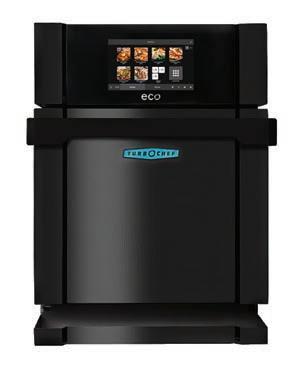
its resilience, adapting quickly to changes in the market and continuing to invest in the guest experience.
“This sector has always found a way to evolve,” he said.
“And right now, it’s showing that with the right strategy, you can still thrive.”
Accommodation Australia is made up of accommodation providers ranging from small regional motels, serviced apartments, timeshare properties, bed & breakfasts, pubs with substantial accommodation offerings to large individual hotels and hotels operated by international groups including Accor, Hilton, Wyndham, Hyatt, IHG, TFE, Quest and Marriott.
The Association represents 1700 properties nationwide with more than 120,000 rooms.
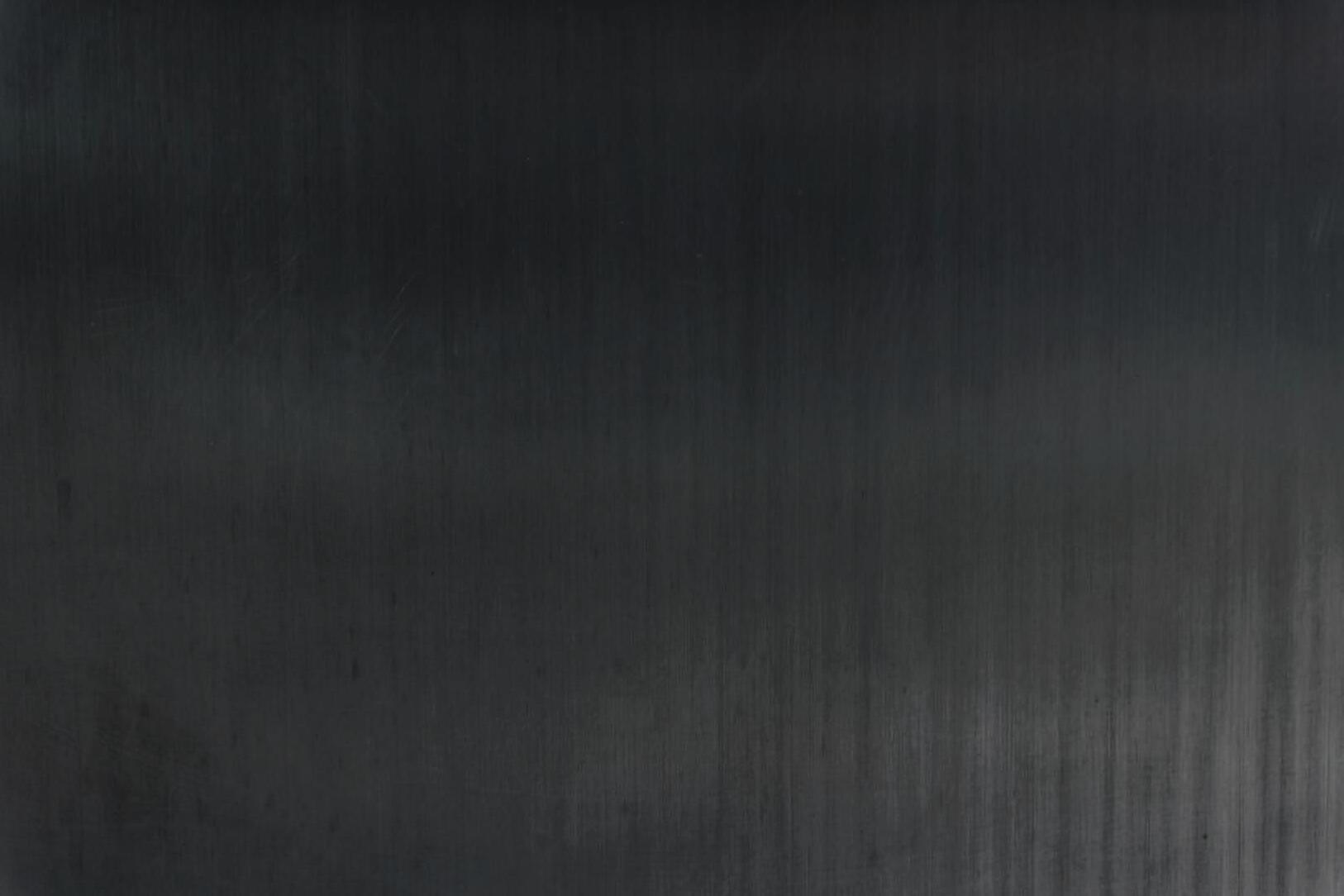
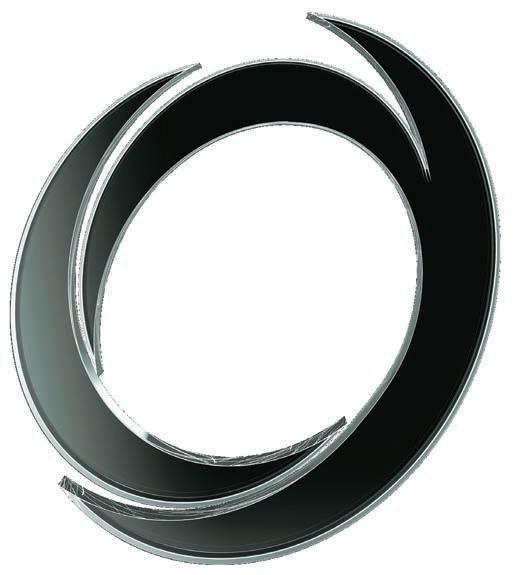
ACCOUNTANCY SERVICES
• Bentleys SA 8372 7900
• Perks Accountants & Wealth Advisers 8273 9300
• MC Lewan Char tered Accountants 1300 622 200
• Winnall & Co. 8379 3159
ATMS
• Banktech 0408 462 321
• Cashzone 1300 305 600
• Next Payments 1300 659 918
ARCHITECTS & INTERIOR
DESIGNERS
• Studio Nine Architects 8132 3999
BEVERAGES
• Samuel Smith & Son 8112 4200
• Sazerac 0410 449 720
• Suntory Food & Beverage Oceania 427 971 426
• Treasury Wine Estates 8301 5400
BOOKKEEPING
• Perks Accountants & Wealth Advisers 8273 9300
• Winnall & Co. 8379 3159
BUILDING & DESIGN
• Bunnings Group 0435 630 660
• Forward Creations 0468 923320
• Mr Wet Wall 1800 938 925
• Paynter Dixon 0418 621 196
ART, CONSULTATION & FRAMING
• Art Images Gallery 8363 0806
AUDIO VISUAL
• Big Screen Video 1300 244 727
• Novatech Creative Event Technology 8352 0300
BACKGROUND MUSIC
• Foxtel Music 1300 148 729
• Moov Music 1300 139 913
• Zoo Business Media 07 5587 7222
BANKING & FINANCE
• BankSA 0403 603 018
• Perks Accountants & Wealth Advisers 8273 9300
BEVERAGE GASES
• BOC Limited 0424 647 568
• Supagas Adelaide 08 8480 4500
BEVERAGES
• Accolade Wines 8392 2238
• Australian Liquor Marketers 8405 7744
• Campari 02 9478 2727
• Carlton & United Breweries
• 13 BEER (13 2337)
• Coca-Cola Europacific Partners 13Coke 132653
• Coopers Brewery 8440 1800
• Diageo Australia 0401 120 872
• Empire Liquor 8371 0088
• Lion 8354 8888
• Liquor Marketing Group 8416 7575
• Oatley Fine Wine Merchants
1800 628 539
• Options Craft Liquor Merchants 8346 9111
• Pernod Ricard Australia 8208 2400
CASH HANDLING / TERMINALS
• Banktech 0408 462 321
• BK Electronics 0431 509 409
• Cardtronics 03 9574 4878
• Coms Systems 0408 462 321
• GBay/Aruze Gaming 0424 700 888
• Next Payments 1300 659 918
CLEANING COMPANIES
• A Cleaner World 0426 887 364
• Service FM 1300 300 595
CLEANING & HYGIENE
SUPPLIES
• Bunnings Group 0435 630 660
• Bunzl 08 8245 6222
DATA ANALYTICS
• STR 02 8091 2009 DEFIBS
• AED Authority 1300 AED 123 (233 123)
• Alsco 8346 1391
• St John 1300 78 5646
EV CHARGING
• RAA Charge 0419 405 235
• Class A Energy Solutions 8391 4853
ENERGY & SOLAR SOLUTIONS
• Class A Energy Solutions 8391 4853
• Energy Alliance 03 9872 6869
• PowerMaintenance
1300 700 500
• RAA Charge 0419 405 235
• Trans Tasman Energy 1300 118 834
EQUIPMENT/SUPPLIES/ HARDWARE
• Bunnings Group 0435 630 660
• Bunzl 088245 6222
• Forward Creations 0468 923320
• Mr Wet Wall 1800 938 925
• Stoddart 1300 79 1954
FACILITY MANAGEMENT
• Service FM 1300 300 595
FINANCIAL PLANNING
• Perks Accountants & Wealth Advisers 8273 9300
• Winnall & Co. 8379 3159
FACIAL RECOGNITION
TECHNOLOGY
• COMS Systems 1800 324 918
FOOD SERVICES
• Bidfood 0403 664 376
• Cookers 1300 88 22 99
• Galipo Foods 8168 2000
• Macro Group 8341 2533
• McCain Foods 0417 811 753
• PFD Foodservice 8114 2300
• Thomas Foods 8162 8400
• Timpecha Foods 8244 8940
FINANCIAL MANAGEMENT
• Wirely 0427 984 951
FIRST AID
• St John 1300 78 5646
FURNISHINGS
• Concept Collections 1300 269 800
GAMING ANALYSIS
• Independant Gaming Analysis 8376 6966
• Winnall & Co 8379 3159
GAMING FLOAT
RECONCILIATION
• GBay Gaming 0424 700 888
• GFR Pro 03 9018 4000
GAMING MACHINE & TECHNOLOGY SERVICES
• Ainsworth Game Technology 0409 171 616
• Aristocrat Technologies Australia 8273 9907
• Coms Systems 0409 283 066
• Everi 0429 579 605
• GBay 0424 700 888
• IGT 8231 8430
• Independant Gaming Analysis 8376 6966
• Konami Australia Pty Ltd 0409 047 899
• Light & Wonder 0400 002 229
• MAX 8275 9700
GAMING LOYALTY
• Bluize 1300 557 587
GAMBLING SERVICES
• SA Lotteries 13 18 68
HEALTH INSURANCE
• Bupa 0417 608 751
HOTEL BROKERS
• Langfords Hotel Brokers 0410 605 224
• JLL 0407 710 389
• McGees Property Hotel Brokers 8414 7800
HOTEL MANAGEMENT
• H&L Australia Pty Ltd 1800 778 340
HOTEL MARKETING
• Digital Marketing AOK 1300 658 543
INFORMATION SYSTEMS/ SITE PREP
• Max Systems 8275 9700
INSURANCE
• Aon Risk Solutions 8301 1111
IT SERVICES
• Rockfor t Global 1300 00 RFIT (7348)
KITCHEN & BAR
EQUIPMENT
• Bunnings Group 0435 630 660
• Bunzl 8245 6222
• Cookers 1300 88 22 99
• Globe Importers 0467 425 314
• Stoddart Food Service
1300 79 1954
EQUIPMENT
• Stoddart Food Service
1300 79 1954
LEGAL SERVICES
• DMAW Lawyers 8210 2287
• Eckermann Lawyers 8235 3990
• Ryan & Co Solicitors 0421595815
• Wallmans Lawyers 8235 3018
LINEN & UNIFORM SERVICES
• Alsco 1300 659 892
• The Banner Crew 8240 0242 MEDIA
• FIVEAA 8419 1395
• Foxtel 1300 138 898
• Solstice Media 8224 1600 MIGRATION
• A Plus Australia Agency 0435 563 920
• Migration Solutions 8210 9800
ONHOLD/MESSAGING
• 1800 ON HOLD 8125 9370
PAYROLL & HR RESOURCES
• Perks Accountants & Wealth Advisers8273 9300
• Tanda 1300 859 117
• Winnall & Co. 8379 3159
POS SYSTEMS
• Bepoz 1300 023 769
• Bluize 1300 557 587
• H&L Australia Pty Ltd 1800 778 340
• My Venue 0415 890 999 PROPERTY & VALUATIONS
• JLL 0407 710 389
• Knight Frank Valuations & Advisory 8233 5222
RETAIL LIQUOR MARKETING
• Liquor Marketing Group 8416 7575
SIGNAGE & PROMOTIONAL ITEMS
• The Banner Crew 8240 0242
SPORTS & ENTERTAINMENT MEDIA
• Foxtel 1300 790 182
STAFF TRAINING & RECRUITMENT
• A Plus Australia Agency 0435 563 920
• Adelaide Institute of Hospitality 8338 1492
• Alliance College 1300 665 065
• St John 1300 78 5646
SUPERANNUATION
• HostPlus 0418 327 607
TEST AND TAG
• Service FM 1300 300 595
WEBSITES
• Boylen 8233 9433
WORKERS COMPENSATION
• EML 08 8127 1368

GAMING CARE works with all South Australian Hotels with gaming machines to reduce the harm caused by problem gambling.
Providing the hotel industry with the capacity to respond to community concerns related to the harm associated with gambling by contributing to early intervention and support for problem gamblers and their families.
Minimising the harm caused by problem gambling behaviour by fostering a compliant and proactive industry that works with regulators, gambling help services and gaming patrons to minimise harm caused by gambling.
Assisting licensees and hotel staff with their compliance obligations, and supporting venue staff through education and training regarding the recognition of problem gambling indicators and assisting in accurately documenting patron behaviour.
Providing licensees and hotel staff with the confidence and skills required to engage directly with patrons who are showing indicators of potential problem gambling, enabling them to intervene early and refer the patron to a gambling help service, or other support options if required.
Contact your local Gaming Care Officer, or our Office, for information on how Gaming Care can assist your venue.
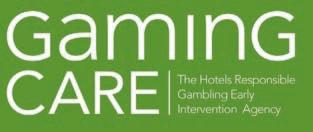
For any assistance or support please contact your local Gaming Care Officer, or our office for information on how Gaming Care can assist your venue.









Ainsworth Game Technology
Australian Liquor Marketers Pty Ltd
BankSA
Big Screen Video
Bluize
1800 ON HOLD
A Plus Agency
A Cleaner World
Adelaide Institute of Hospitality
AED Authority
Alliance College
Alsco
Banktech
Bentleys SA
BK Electronics
BOC Limited
Cashzone






Boylen
Bunnings Group
Bunzl
Campari Group
Digital Marketing AOK
Empire Liquor
Class A Energy Solutions
COMS Systems
Concept Collections
Cookers
DMAW Lawyers
Eckermann Lawyers
Energy Alliance
Everi
Forward Creations
Globe Importers
Independant Gaming Analysis
JLL









Foxtel
GFR Pro
IGT Australia
Konami Australia Pty Ltd
Light & Wonder
Liquor Marketing Group
Novatech Creative Event Technology
Knight Frank Valuations & Advisory SA
Langford’s Hotel Brokers
Macro Group
McGees Property Hotel Brokers
MC Lewan Chartered Accountants
Mr Wet Wall
MyVenue
Next Payments
Options Craft Liquor Merchants
Perks Accountants & Wealth
Advisers
Oatley Fine Wine Merchants
Rockfort Global
Samuel Smith & Son
Service
FM
Stoddart Food Equipment
STR
Tanda
PowerMaintenance
RAA Charge
Ryan & Co Solicitors
Solstice Media
St John
Supagas
The Banner Crew
Trans Tasman Energy Group
Wallmans Lawyers
Winnall & Co
Wirely
Art Images Gallery
BUPA
Migration Solutions
Sazerac
Studio Nine Architects

OFFICE
Level 4, 60 Hindmarsh Square, Adelaide SA 5000
Postal PO Box 3092, Rundle Mall SA 5000
P (08) 8232 4525
P 1800 814 525 Toll Free
F (08) 8232 4979
E information@ahasa.asn.au
W www.ahasa.asn.au
DAVID BASHEER President
MATTHEW BINNS Vice President
LUKE DONALDSON Deputy Vice President
COUNCIL
ANDREW BULLOCK
DANIEL CASSIN
SIMONE DOUGLAS
JASON FAHEY
TRENT FAHEY
ROB MITCHELL
ELISE FASSINA
JAMES FRANZON
TONY FRANZON
JOHN GIANNITTO
TOM HANNAH
GUY MATTHEWS
KAREN MILESI
ANDREW PLUSH
ROB RANKINE
MARGY RAYMOND
DARREN STEELE
ANNA MOELLER CEO
OWEN WEBB Deputy CEO
ALISA WENZEL Manager – Finance and Administration
NATARSHA STEVENSON Manager – Policy & Industry Affairs
SARAH LEGOE Senior Advisor –Workplace Relations, Liquor Licensing & Gaming
SCOTT VAUGHAN Manager – Membership & Business Services
LUCY RANDALL Manager – Events & Partnerships
LIZ TURLEY Training Coordinator
PATTEN, Tourism & Accommodation Manager
Views expressed in Hotel SA are not necessarily those of the AHA|SA or the publisher and neither can accept, and therefore disclaims any liability, to any party for loss or damage caused by errors or omissions resulting from negligence, accident or any other cause. We do not endorse any advertising materials, services offered within advertisements or products, special offers or goods promoted therein.